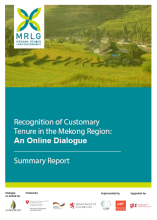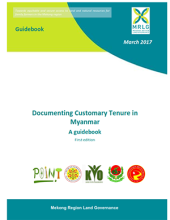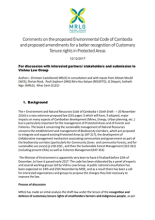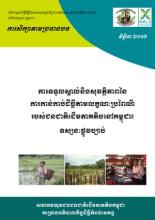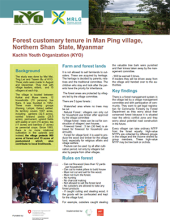Land Library
Welcome to the Land Portal Library. Explore our vast collection of open-access resources (over 74,000) including reports, journal articles, research papers, peer-reviewed publications, legal documents, videos and much more.
/ library resources
Showing items 1 through 9 of 11.This dialogue provided a way for the land community to collaboratively explore challenges and opportunities related to the recognition of indigenous, ethnic minority and customary tenure rights in the Mekong region in order to:
This guidebook provides conceptual, legal and practical tools and resources to help civil society organizations guide communities through the process of documenting customary tenure at the local level.
The « Environment and Natural Resources Code of Cambodia » (Sixth Draft – – 20 November 2016) is a very extensive proposed law (535 pages !) which will have, if adopted, major impacts on many aspects of Cambodian development (Mines, Energy, Urban planning, etc..) but is particularly important for
This short thematic study challenges the assumption that the legal framework to recognize and protect indigenous peoples’ (IP) customary lands is adequate and that the challenge lies in its implementation.
This video is based on the combined efforts of 5 civil society organizations and ethnic youth organizations (88 Generation, Point, FLU, KYO&TSYU) to document local Customary Tenure practices in different villages throughout the country, in the states of Shan North, Shan South, Magwe and Kayah
The poster presents an overview of forestland, livelihoods and customary practices in Man Ping Village, Northern Shan State, Myanmar.
Since Karamoja is richly endowed with gold, marble, iron ore, tungsten, limestone, oil and gas, it has attracted many investors, in particular since the protracted armed conflicts in northern Uganda started fading away.
Post-conflict northern Uganda has witnessed an increase in disputes over land. This has, to a great extent, been as a result of the armed conflict and its aftermath.
Over 80% of all land in Uganda is held under unregistered ‘customary tenure’. This means that it is private property, but the owners need no documents to prove ownership.

